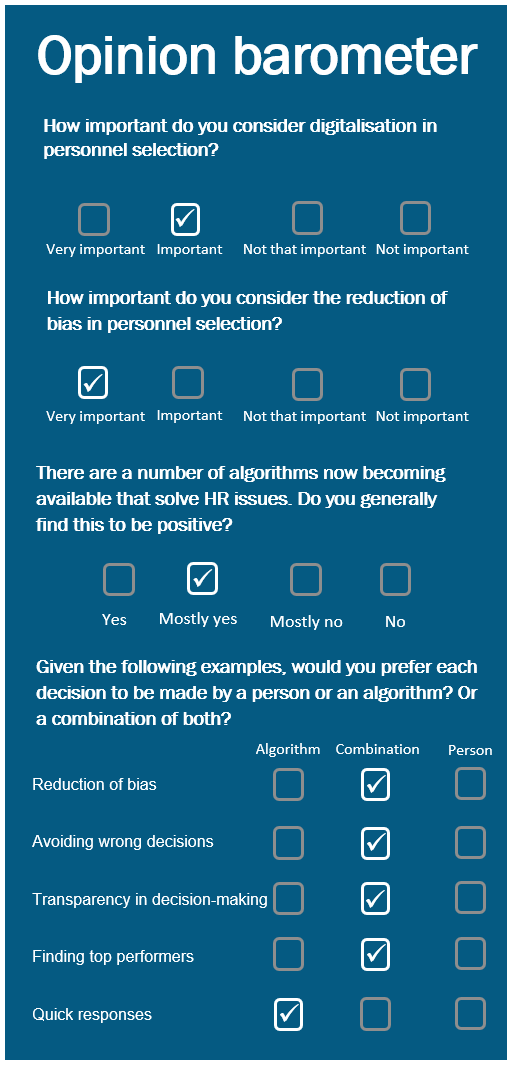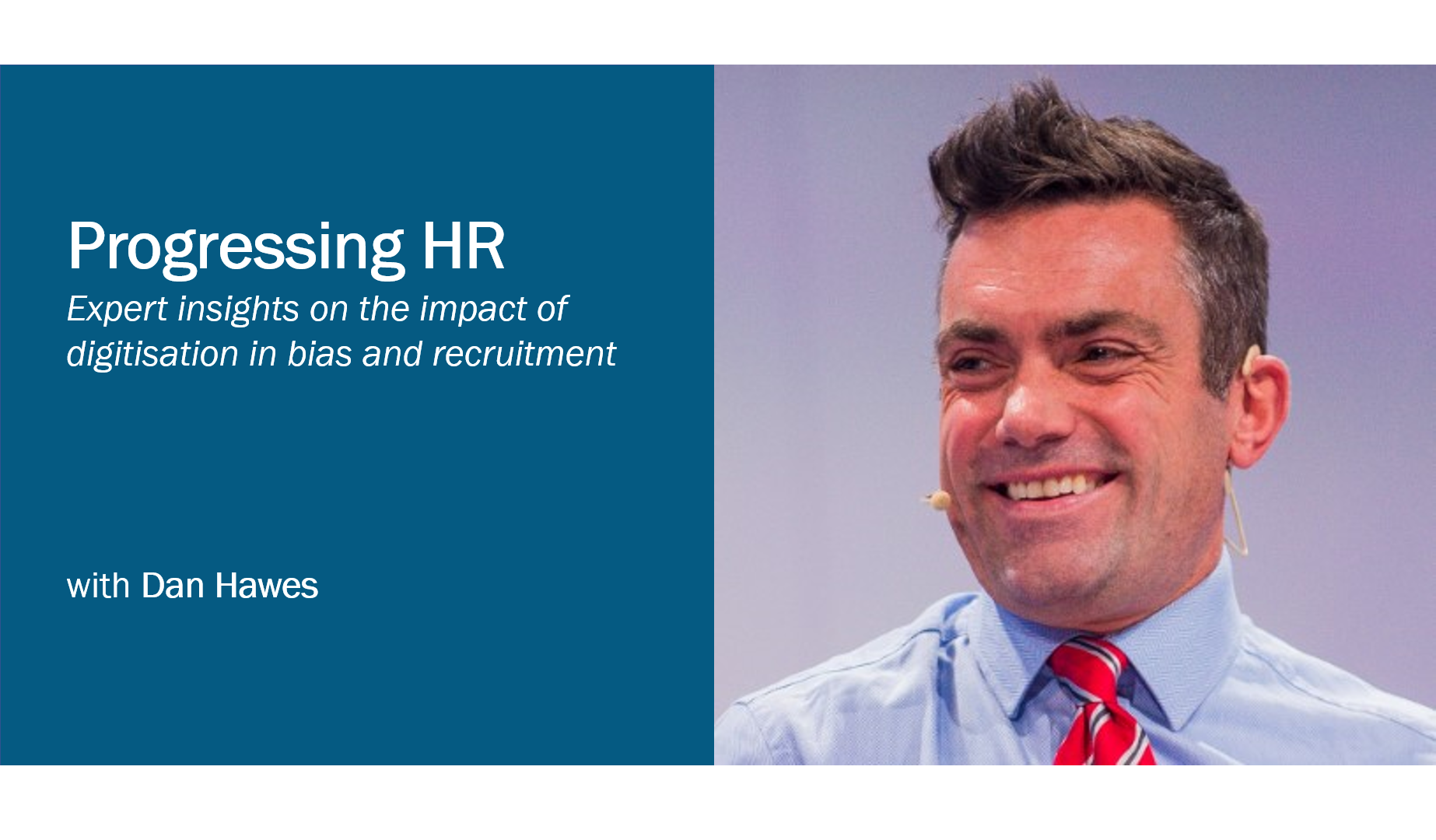Progressing HR with Dan Hawes
23.07.2020
About the series:
"Progressing HR" is a weekly series on our blog featuring the views of experts on the digitalisation of HR with regards to bias and recruitment.
About the author:
Dan Hawes is the co-founder and Marketing Director of the Graduate Recruitment Bureau, a UK-based recruitment consultancy which connects university graduates and recruiters and has placed more than 600,000 students in the UK to date. As an innovator in the recruitment space who brings a professional approach to entry-level recruitment, Dan aims to enlighten students, graduates and employers with wisdom from over 20 years in the industry. In addition to his contrbutions on the GRB blog, he has also lent his insights to Radio 1, BBC Breakfast, The Times, FT, Independent, the New Scientist and The Guardian.

Do you see potential for the use of algorithms in personnel selection? Where are the risks?
The recruitment process is extremely inefficient so I think the use of tech in streamlining the process, improving the candidate experience and, ultimately, leading to better hiring decisions by employers is to be welcomed. We have seen leading businesses use algorithms to devasting effect such as Amazon and they will undeniably seep into all other industries in time. The risks that immediately spring to mind are that the process becomes too robotic. The human element may become neglected or diminished which, when it comes to creating relationships between employee and employer, is such an important factor.
To what extent do you think bias plays a role in personnel selection?
I think it can creep in if not monitored. Having a variety of people in the decision making process who are well trained can alleviate this.
Can algorithms help to reduce bias in personnel selection?
In theory, it could but it really depends on the humans who programme the algorithm! This is relatively new technology in recruitment and needs to be sharpened up to be truly reliable. Even data-driven Google could not prove that unconscious bias training actually resulted in an increase in diversity hires. Given huge responses to graduate recruitment campaigns I can see why recruiters are trying to find time saving technology but I’m not sure we can leave selection entirely to algorithms just yet.
What do you think is the ideal process for finding the right hire?
The tried-and-tested method used by thousands of leading recruiters is to carefully profile the skillsets you need, create tests around these and interview around competencies. Before all that can happen recruiters need to remove any barriers and be inclusive from the outset to reach the widest pool of available talent. It’s this last point that really needs addressing urgently. I estimate that biases taken together result in the loss of up to 25% of a firm’s qualified potential diversity hires. Some form of data-driven solution could really go some way to resolve this issue and create stronger workforces that are more prepared for the 21st century.

